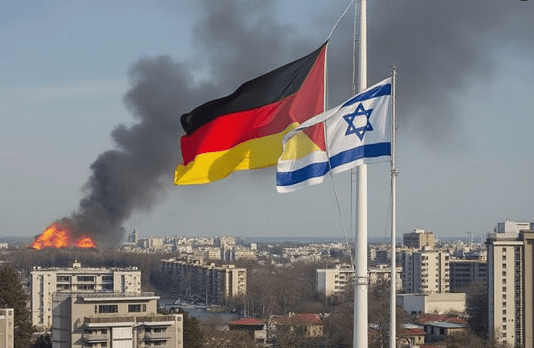As the conflict between Israel and Hamas continues to escalate, Germany has reinforced its stance as a key ally of Israel, making a significant and highly visible commitment to delivering further military support. On October 11, 2024, Chancellor Olaf Scholz publicly declared that Germany would continue to provide Israel with weapons, a move that has ignited both domestic and international discussions on the nation’s role in global conflicts.
Germany’s Support for Israel
Germany’s military aid to Israel is not new, but the latest pledge of support takes on special significance given the escalating violence in the region. This comes at a time when Israel is engaged in a fierce conflict with Hamas, which has led to heavy casualties on both sides. The ongoing violence has stirred debates globally, but Germany’s position remains steadfast in its support of Israel’s right to defend itself against attacks. Scholz’s announcement reflects Germany’s long-standing commitment to Israel’s security, a key aspect of its foreign policy since World War II.
This decision aligns with the broader approach taken by the German government, which has historically provided Israel with military technology, including submarines and missile defense systems. By continuing to supply weapons, Germany is reaffirming its strategic partnership with Israel, emphasizing the need for strong defense capabilities in the face of persistent threats.
Domestic Reactions and Political Implications
Scholz’s declaration has sparked a range of reactions within Germany. Members of his own coalition government, as well as opposition leaders, have voiced varying opinions on the continued arms support. Some argue that while Israel has the right to self-defense, Germany should also be actively working towards peace efforts in the region. Others fully support the government’s decision, emphasizing that it is crucial to stand by allies in times of conflict.
This announcement also highlights Germany’s delicate balancing act in the Middle East. While it supports Israel, it also maintains diplomatic relations with other nations in the region, making it essential for Germany to navigate this complex political landscape carefully.
Germany’s Role in the Broader Global Response
As Germany pledges further weapons, the international community closely monitors its actions. The move contributes to the broader Western response to the conflict, where nations like the United States have also provided strong support to Israel. However, Germany’s decision carries additional weight given its historical context and moral obligations, especially in light of its role during World War II.
Germany’s support for Israel goes beyond military assistance. The country has long been involved in humanitarian efforts in the region, advocating for a two-state solution and supporting international initiatives aimed at reducing tensions. Nevertheless, the current crisis has made it clear that Germany sees military aid as essential for safeguarding Israel’s security.
Looking Ahead
As the situation in the Middle East continues to develop, Germany’s role in supporting Israel through military aid will remain a focal point of both domestic and international discussions. While Germany has reiterated its commitment to Israel’s defense, the broader question of how to balance military support with diplomatic efforts to promote peace will continue to shape its foreign policy in the region.
The decision to provide more weapons is not just about supporting an ally; it is also a statement about Germany’s place on the global stage, reaffirming its influence in matters of international security and conflict resolution. As the conflict unfolds, Germany’s actions will be scrutinized, and the pressure to contribute to peaceful resolutions will grow alongside its military commitments.





